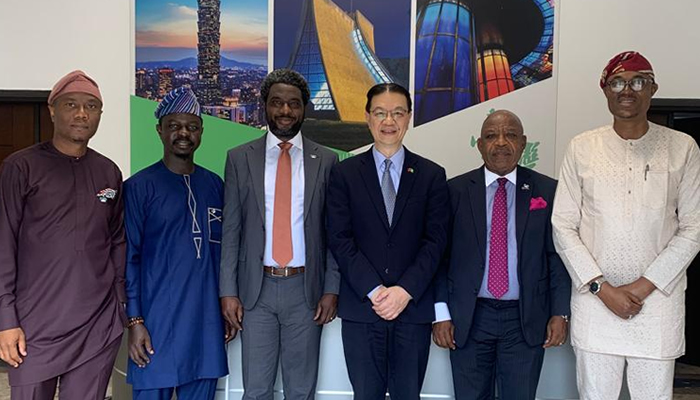The International Real Estate Federation (FIABCI) has strongly advocated for Nigeria to embrace proven international construction models and regulatory frameworks as a crucial step towards mitigating the persistent issue of building collapses plaguing the nation. This call to action emphasizes the need for a sustainable solution to address this recurring problem and underscores the importance of learning from the successes and failures of other countries in the realm of construction and development. The federation highlighted the potential benefits of adopting best practices from countries like Taiwan, which has experience in dealing with natural disasters and has developed robust building codes and enforcement mechanisms.
Taiwan, as a potential model, offers valuable insights for Nigeria, particularly in areas like disaster resilience and construction quality. The Chief of the Taiwan Mission in Nigeria, Andy Yih-Ping Liu, pointed out Taiwan’s experience in managing natural disasters like floods and typhoons, suggesting that Nigeria could benefit from their expertise in designing resilient structures and implementing stringent building codes. Liu emphasized the importance of a collaborative approach involving government regulation, construction companies, architects, and city planners working in unison to ensure safe and sustainable development. He highlighted Taiwan’s journey of development, stressing the importance of education, public-private partnerships, and a holistic approach to city planning that integrates transportation and other essential infrastructure.
Akin Opatola, President of FIABCI Nigeria, Lagos Chapter, reinforced the importance of adopting foreign models, particularly emphasizing the crucial role of public-private partnerships (PPPs) in facilitating such adoption. He stressed that PPPs are essential for Nigeria, especially as a developing nation, to leverage the resources and expertise of the private sector in infrastructure and housing development. Opatola cited the proposed Fourth Mainland Bridge project as a prime example of a PPP initiative that can bring much-needed infrastructure development. He further argued that PPPs are a globally recognized model for sustainable development, allowing governments to optimize resource allocation while benefiting from private sector investment and expertise.
Public-private partnerships, as championed by FIABCI, offer a viable pathway for Nigeria to tackle its infrastructure and housing challenges. This model allows the government to leverage private sector capital and expertise, thereby reducing the burden on public finances. PPPs are particularly well-suited for long-term projects with significant upfront costs, such as the construction of major infrastructure or the development of affordable housing. By sharing the risks and responsibilities, PPPs can also enhance efficiency and accountability in project execution. This collaborative approach enables governments to focus on other critical areas like education, healthcare, and social welfare, contributing to a more balanced and sustainable development trajectory.
Beyond the technical aspects of construction, Taiwan’s experience also offers valuable lessons in regulatory oversight and enforcement. Liu acknowledged that Taiwan has also faced building collapses in the past, but these experiences have led to improvements in regulations, monitoring, and enforcement. He encouraged Nigeria to learn from these lessons to avoid repeating similar mistakes. This emphasizes the importance of not just adopting building codes but also ensuring their strict implementation and enforcement. A robust regulatory framework coupled with effective monitoring and enforcement can significantly reduce the risk of building collapses and ensure the safety and well-being of occupants.
The 2025 Annual General Meeting of FIABCI in Lagos served as a platform to discuss these critical issues and induct new members into the organization. Adeniji Adele, President of FIABCI Africa & Near East Region, emphasized the importance of the meeting as an opportunity to reflect on past achievements, consolidate gains, and chart a course for future growth. He urged all members to actively participate and contribute to the discussions, emphasizing the need for unity and collaboration to further elevate FIABCI’s role in the global real estate community. This highlights the commitment of FIABCI to facilitate knowledge sharing, collaboration, and the adoption of best practices in the real estate sector, both within Nigeria and across the broader African region.


